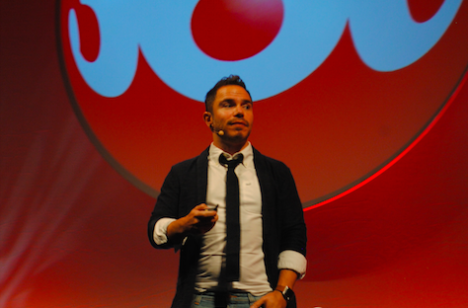‘Artificial intelligence will change consumer decision-making process’, says Chris Stephenson
Within a decade marketers will have to worry more about the algorithm than emotion Chris Stephenson, chief strategist for media agency PHD, has predicted.
The bold pronouncement was made during the international keynote last week at the Mumbrella360 conference with Stephenson warning that humans are not far away from a future where consumers will have virtual personal assistants (VPAs) who will make purchasing decisions for them.
“The AI (artificial intelligence) train is coming,” Stephenson said.


